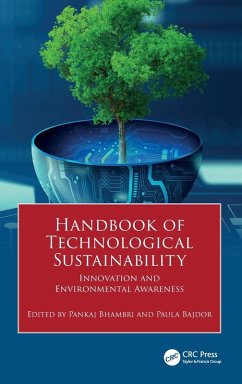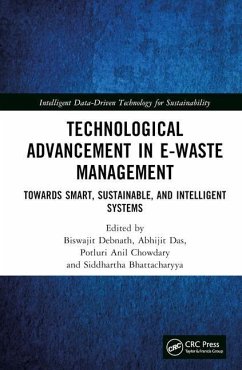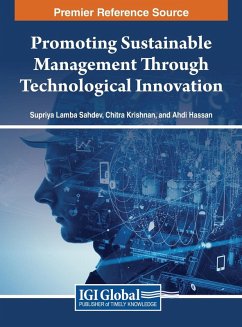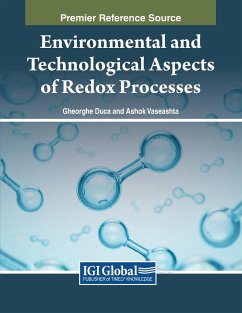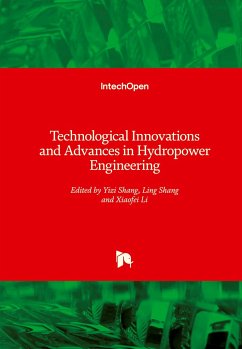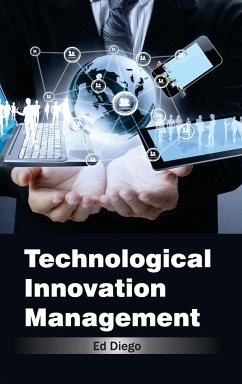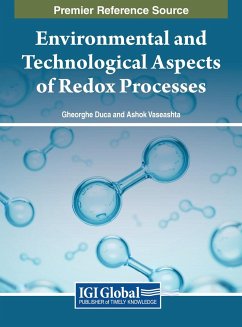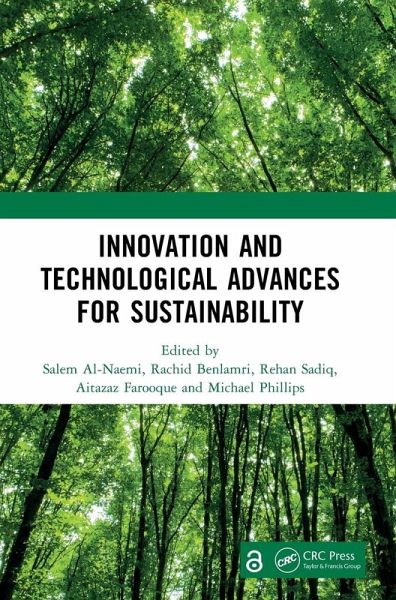
Gebundenes Buch
Innovation and Technological Advances for Sustainability
Proceedings of the International Conference on Innovation and Technological Advances for Sustainability, (ITAS 2023), March 01-03, 2023, Doha, Qatar
Herausgeber: Al-Naemi, Salem; Sadiq, Rehan; Benlamri, Rachid
Versandkostenfrei!
Versandfertig in 1-2 Wochen

PAYBACK Punkte
100 °P sammeln!




Encompassing local, regional, and international perspectives, this publication delves into critical global issues such as food security, environmental preservation, energy sustainability, economic resilience, and the role of digital technologies in fostering sustainable development.
Salem Al-Naemi is the First President of the University of Doha for Science and Technology (UDST), and has more than 30 years of work experience in both government and private sectors. He is a successful executive with considerable leadership experience in education, government, and business organizations. Dr. Al-Naemi holds an MBA and PhD in Computer Science. He also has a master's in mathematics and a Bachelor's degree with a double major in Mathematics and Computer Science. His expertise lies in organizational strategies, managerial leadership, communication, and operational efficiency to accomplish goals and achieve success for an organization. He has worked with a diverse workforce and in many multi-national organizations in key positions. Rachid Benlamri is the Vice President, Academic at the University of Doha for Science and Technology (UDST) and holds a rich academic experience of over 30 years. Prior to joining UDST, Prof. Benlamri worked as the Vice President Academic at the Canadian University of Dubai. He also worked as Professor of Software Engineering and Head of the Department of Software Engineering in the Faculty of Engineering at Lakehead University, Canada. He earned his master's and PhD in Computer Science from the University of Manchester, UK. Dr. Benlamri was the Head of the Data Science and Artificial Intelligence Lab at Lakehead University. His research interests are in the areas of artificial intelligence, data science, semantic web, knowledge engineering, health informatics, and mobile & ubiquitous computing. His research is supported by many funding institutions. He has supervised over 70 students and postdoctoral fellows. He served as keynote speaker and as the general chair for many international conferences. Prof. Benlamri serves on the editorial board of many Q1 journals. Moreover, he published over 120 papers, mainly in Q1 journals and peer-reviewed international conference proceedings. Rehan Sadiq is Provost and Vice-President, Academic and a Professor of Civil Engineering at UBC's Okanagan campus. He is a world-leading researcher in the areas of asset management of water supply systems, environmental risk analysis, and lifecycle assessment of built environment. He is the author of more than 600 peer-reviewed journal and conference articles, book chapters, and technical reports. With nearly 16,000 citations, he is among the top cited environmental engineering researchers globally; consistently ranked in the top 2% of scientists in the category of environmental science. He has served on and chaired numerous Canadian and international scientific committees and conferences. He sits on the editorial board of many international journals in his field. He has been registered as a Professional Engineer in BC (since 2010). He is also a Fellow of the Canadian Academy of Engineering (CAE), the Canadian Society of Civil Engineering (FCSE), Engineers Canada (FEC) and the Engineering Institute of Canada (FEIC). Aitazaz A. Farooque is working as a Professor & Associate Dean at the School of Climate Change and Adaptation, University of Prince Edward Island (UPEI). He is also leading the Centre of Excellence in Food Security and Sustainability at UPEI. His research focuses on the fundamental understanding and development of state-of-the-art climate-smart agriculture technologies to improve soil health, increase farm profitability, and mitigate environmental risks for Canadian agriculture industry. He has supervised/supervising 13 PhD students, 16 MSc students, 3 post-doctoral fellows, 8 research associates, and over 30 undergraduate research students. He has authored/co-authored over 100 peer-reviewed journal articles, 8 book chapters, 80 conference proceedings, 70 industry presentations, and 30 keynote/invited talks at various conferences and professional events. He has received various national awards in recognition of his excellent contributions to research, teaching, and services. He has garnered over $8M in research funding from various provincial, federal, and industry funding agencies in Canada. Michael Phillips is the Director of Applied Research, Innovation and Economic Development at the University of Doha for Science and Technology and has a degree in Civil Engineering, a Masters in Environmental Management and PhD in Coastal Morpho-dynamics. Other roles include UNESCO Chair on TVET and Sustainable Development and QAPCO Professional Chair in Vocational Studies (TVET). He has served as an Adjunct Professor in Canada, Iceland and Malaysia. His TEDx talk entitled: 'Living on the coast, climate change and acceptable risk' in response to economic and business loss from climate change impacts, focused on improving resilience. Dr. Phillips has published >100 academic articles and supervised >30 successful research degree students. He has also been involved in interdisciplinary research and, through a design education lens has helped develop strategies to deliver effective entrepreneurial education. He has long been involved in STEM and TVET education and has always emphasized its importance for the economy and employability. He encourages faculty to engage as many students as possible in applied research projects, increasing the number of proposals submitted in response to research calls and capacity-building programs, as well as engaging them in entrepreneurship.
Produktdetails
- Verlag: CRC Press
- Seitenzahl: 638
- Erscheinungstermin: 9. Dezember 2024
- Englisch
- Abmessung: 250mm x 175mm x 38mm
- Gewicht: 1263g
- ISBN-13: 9781032803722
- ISBN-10: 103280372X
- Artikelnr.: 71601420
Herstellerkennzeichnung
Libri GmbH
Europaallee 1
36244 Bad Hersfeld
gpsr@libri.de
Für dieses Produkt wurde noch keine Bewertung abgegeben. Wir würden uns sehr freuen, wenn du die erste Bewertung schreibst!
Eine Bewertung schreiben
Eine Bewertung schreiben
Andere Kunden interessierten sich für




